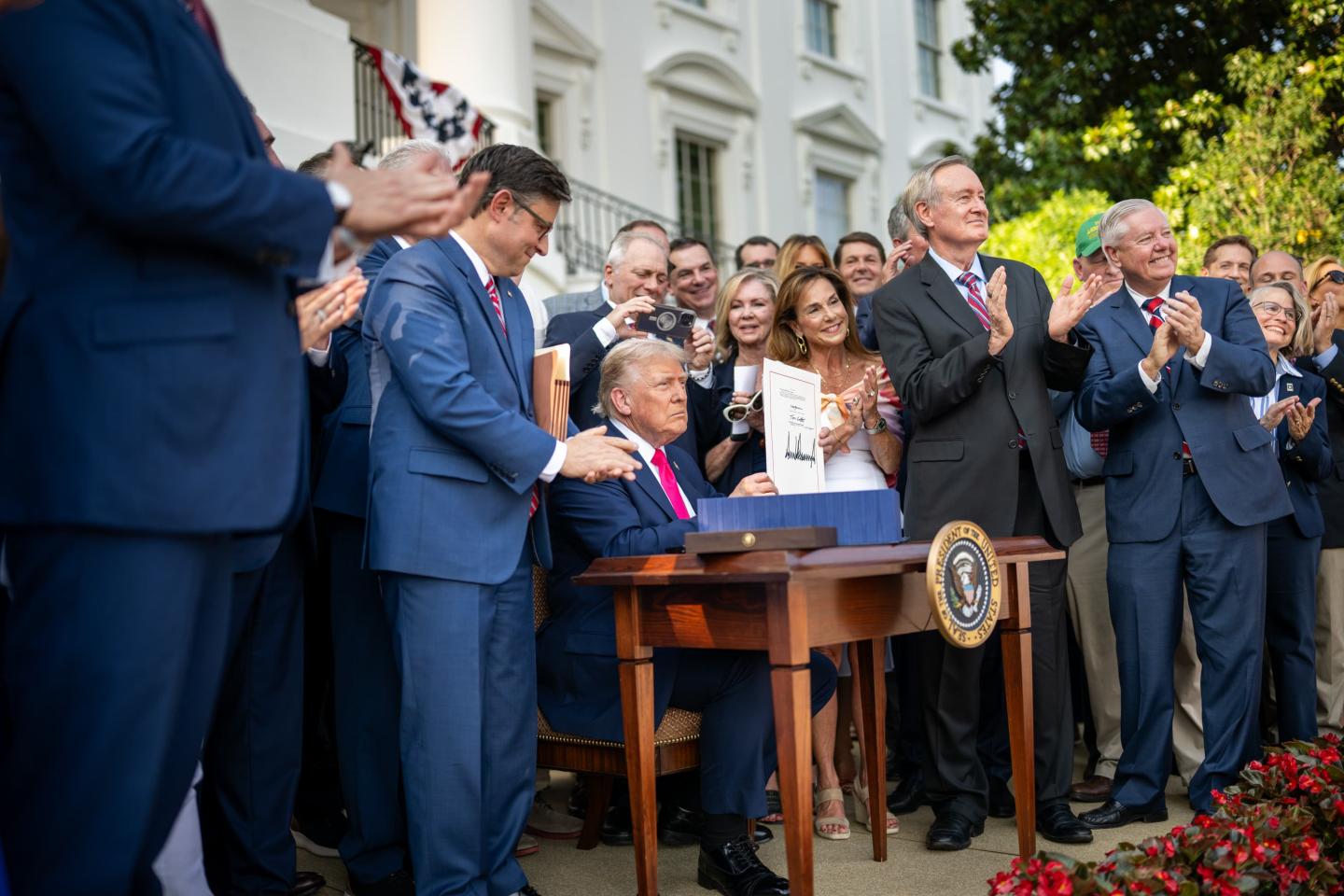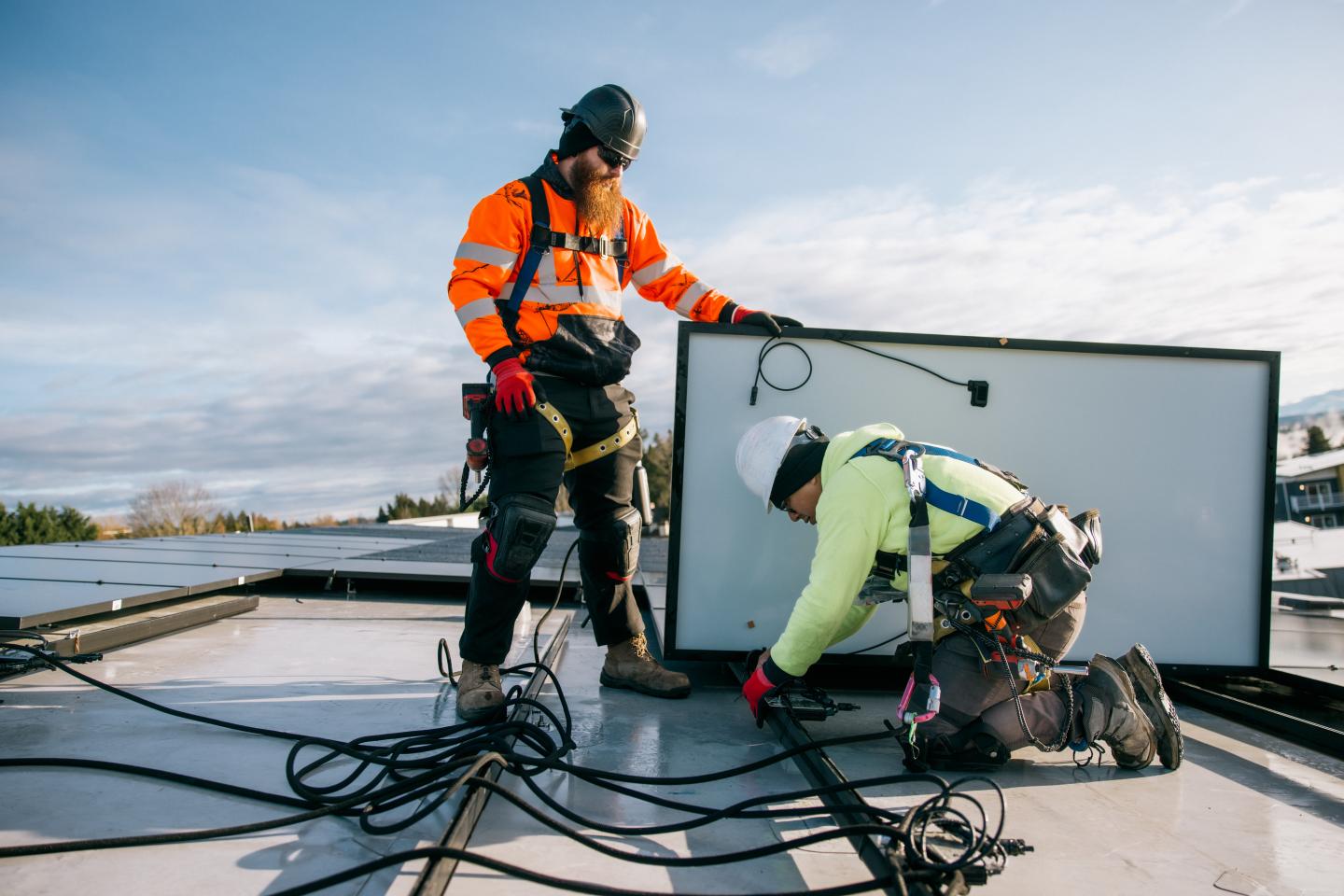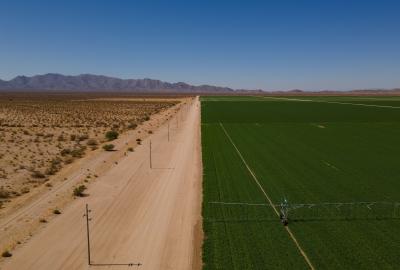Clean energy cuts in Trump administration’s ‘big bill’ will hurt your wallet and health
On July 4, President Trump signed a deeply unpopular bill into law.

New polling shows that 67% of voters oppose the so-called “big, beautiful bill” once they learn what’s in it — including cuts to clean energy that will raise people’s energy costs and increase health-harming pollution.
We asked Joanna Slaney, who leads political affairs work for the nonprofit Environmental Defense Fund, to explain how energy provisions in the law are going to hit home.
How will clean energy cuts in the law affect people’s wallets?
This new law is expected to add $170 each year on average to your energy bills, and more than $400 a year for people in several states over the next decade. The law cuts tax credits for reliable, affordable clean energy at a time when America needs it most. Demand for energy in the U.S. is breaking records, and clean energy is often the fastest, cheapest way to meet this demand — last year 95% of new power on the grid came from wind and solar. Without enough supply over the coming years, costs for consumers will go up.
On top of that, this law limits the options families once had to bring their energy costs down. For example, if you were thinking about buying an electric vehicle to save on the cost of gas, that tax credit will be gone by the end of September. For those planning to add solar panels to lower their electric bill, the solar tax credit is disappearing too, by the end of the year.
These credits don’t just help bring down costs. They create jobs and, unlike fossil fuel energy, they don’t create pollution that makes us sick.
Some in clean energy are calling this law a job-killer. What’s your take?

The numbers are sobering. This law could eliminate 900,000 good-paying jobs in energy and manufacturing. Sean McGarvey, president of North America’s Building Trades Unions, called it “the biggest job-killing bill in the history of this country.”
One reason some lawmakers were hesitant to support this bill is because many communities have been benefiting from clean energy jobs, and this law threatens those jobs.
Environmental news that matters, straight to your inbox
How will less investment in clean energy affect people’s health?
Here's one example — instead of supporting clean energy sources, the new law gives a tax credit for coal production, even though we know pollution from burning coal is linked to cancer and damages children’s brains.
On top of that, it delays the methane polluter fee, a solution that incentivizes oil and gas operators to waste less methane, the main component of natural gas. When methane leaks, toxic chemicals, like cancer-causing benzene, often leak along with it. The program that could have cut this harmful pollution and methane waste — which is enough to meet the energy needs of 14 million homes every year — has now been blocked for 10 years.
How would you sum up these impacts, bottom line?
This is a big, sprawling law that will affect so many aspects of our lives. It’s been advertised as a way to save money, but a lot of people don’t realize that it will make energy more expensive — and it does so while also eliminating hundreds of thousands of jobs, increasing health-harming pollution, and adding $4 trillion to the national debt over the next decade.

